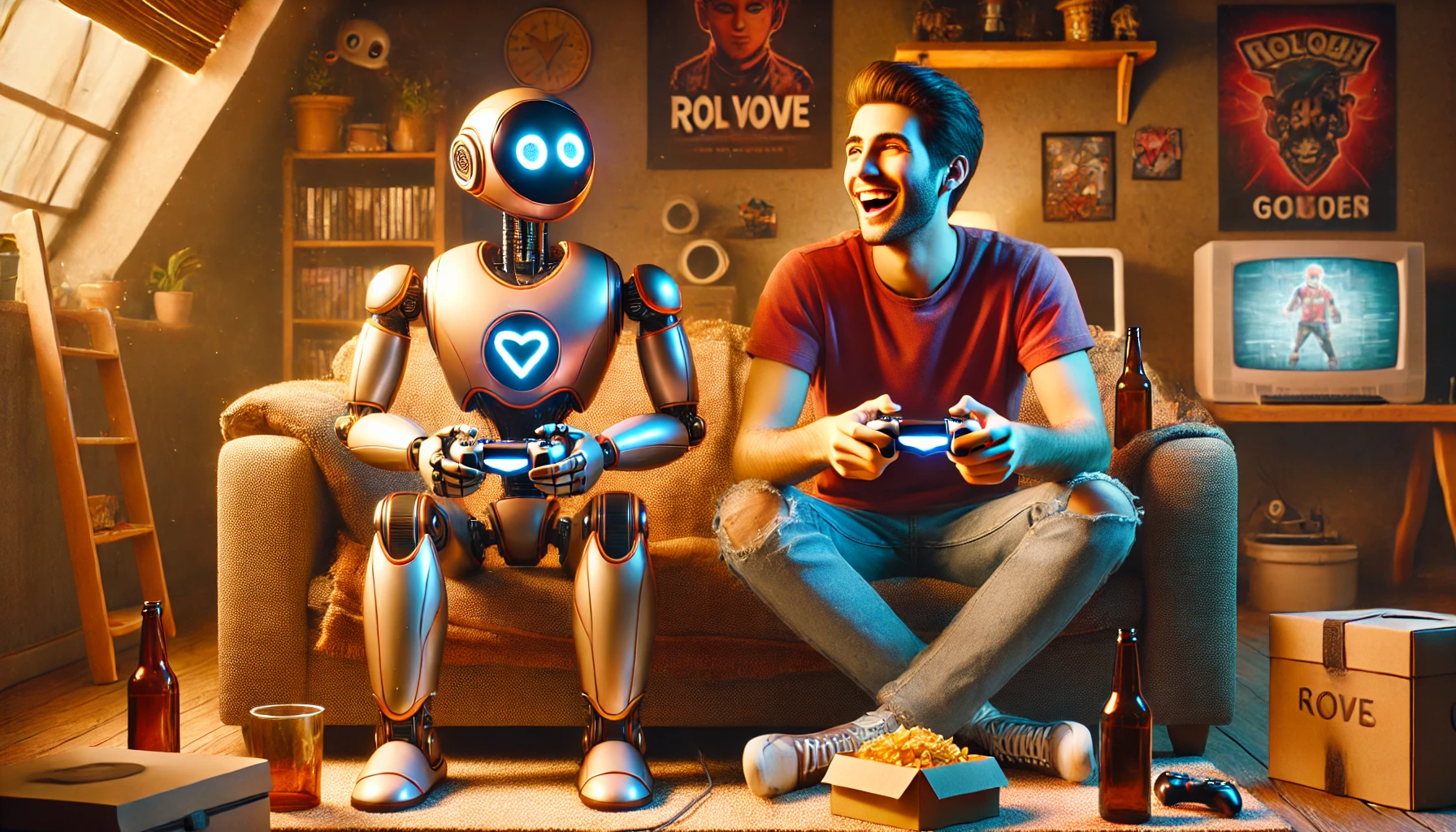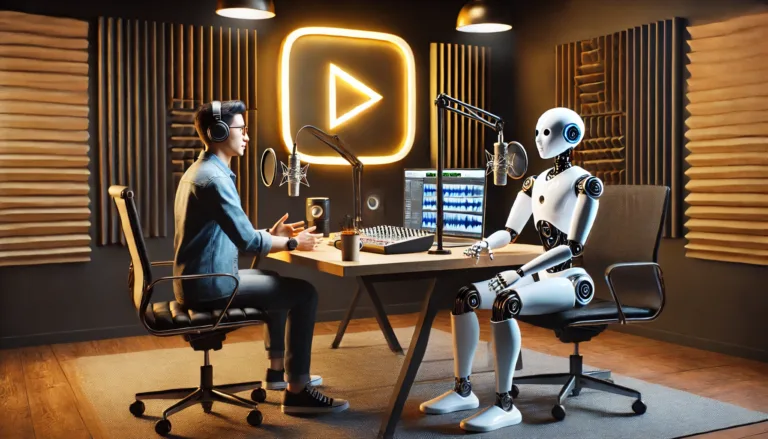The entertainment industry is no stranger to evolution. Each technological leap—from radio and television to the internet—has redefined how audiences consume content. Today, artificial intelligence (AI) is one of the most revolutionary forces shaping entertainment. AI’s ability to process vast amounts of data, learn from it, and make real-time decisions is helping the industry to become more efficient, engaging, and personalized. Whether in film production, music creation, gaming, or interactive media, AI is reshaping the way we create and enjoy content.
AI in Film and Animation Production
AI is streamlining the complex process of film production. In animation, AI algorithms assist by generating movements, textures, and expressions for characters, significantly reducing the workload for animators. Tools powered by machine learning can predict movements based on simple inputs, allowing animators to create lifelike characters and scenes with minimal effort. For example, deep learning algorithms can now analyze video frames and assist in creating realistic CGI. This technology reduces the time and cost involved in high-quality animation production.
Furthermore, AI-powered editing tools analyze vast amounts of footage and identify scenes that may be ideal for trailers or advertisements, speeding up the editing process. These systems can detect key moments based on tone, setting, or context, producing initial edits that save hours of work. AI also plays a role in color correction, an essential but time-consuming part of film post-production. AI algorithms quickly analyze the color patterns in a scene and apply corrections, ensuring visual consistency throughout the movie.
AI in Music Production and Personalization
In music, AI is revolutionizing everything from production to promotion. AI-based music software allows artists to generate compositions or even complete songs based on pre-set parameters. These AI programs analyze musical structures and use that knowledge to create compositions that sound remarkably similar to those made by humans. Artists can input a genre, mood, or rhythm pattern, and the AI software will generate an original composition, saving hours in the studio.
Streaming services like Spotify, Apple Music, and Pandora have implemented AI-driven algorithms that track user preferences, listening habits, and other factors to offer tailored recommendations. These recommendation systems help listeners discover new artists and genres they are likely to enjoy. Additionally, AI enhances user engagement by identifying trends in listener preferences and creating personalized playlists.
AI in Video Games and Interactive Media
Video games are one of the most interactive forms of entertainment, and AI is a key player in making gaming experiences richer and more immersive. AI algorithms control NPCs (Non-Player Characters), making them more realistic and unpredictable. These NPCs can learn from a player’s actions, adapting their responses to create a more challenging and engaging game environment. For example, some AI-controlled characters remember previous interactions, making decisions that affect the storyline.
AI in gaming also helps developers create dynamic environments. Games like *No Man’s Sky* use AI to procedurally generate entire worlds, creating planets, creatures, and ecosystems that players can explore. The AI continuously adapts based on player interactions, ensuring no two playthroughs are the same.
AI-Driven Content Recommendation Systems
AI-driven recommendation systems are a hallmark of modern entertainment platforms. Netflix, YouTube, and similar streaming services use AI algorithms to suggest content based on viewing history, preferences, and engagement metrics. These algorithms analyze patterns across millions of users, delivering personalized suggestions that keep audiences engaged.
AI-powered recommendation systems have evolved to offer an unprecedented level of personalization. Netflix, for example, generates thumbnails for different users based on their viewing habits. If a user favors comedy, the platform might highlight characters in humorous situations, while a fan of action sees images focused on intensity. This level of personalization significantly boosts viewer engagement, as it caters to individual tastes in a way that was impossible before.
AI-Powered Virtual and Augmented Reality Experiences
Virtual Reality (VR) and Augmented Reality (AR) are fields where AI’s role in entertainment is becoming more apparent. AI integrates with VR and AR to create highly interactive experiences. In VR films, for example, AI enables viewers to interact with the storyline and affect outcomes. Imagine watching a VR thriller where your decisions change the ending—AI can make this possible, providing a uniquely personal experience.
AI also makes it possible to blend virtual elements with real-world environments seamlessly. In AR gaming, players interact with digital elements overlaid on the physical world. AI processes data from the surroundings, allowing digital objects to interact realistically with real-world items. This technology opens possibilities for immersive content, like interactive tours, VR concerts, or educational experiences that transport users to different times and places.
AI and the Future of Storytelling
One of AI’s most exciting roles is in storytelling, where it collaborates with writers to craft unique narratives. Some tools can now analyze a script’s structure, suggest plot twists, or even write dialogue, assisting human creators. AI is also used to generate interactive storylines that adapt based on viewer choices, giving users greater control over the narrative. This innovation allows audiences to play an active role in the storytelling process.
AI storytelling platforms can analyze user reactions in real-time and adjust the content accordingly. Imagine watching a thriller where your heart rate, tracked through wearable tech, influences the suspense level. If your heart rate increases, the AI might introduce a tense moment or a sudden scare. AI in storytelling also makes it possible for filmmakers to test multiple plot endings, using data to predict which version will resonate best with audiences.
AI in Visual Effects and Special Effects
In visual effects (VFX), AI helps studios to create complex scenes that would otherwise require enormous time and resources. Machine learning algorithms analyze vast libraries of images and videos, learning patterns that help create realistic effects. These AI models can also generate deepfake videos, which blend faces or objects into scenes with impressive accuracy. Although deepfakes pose ethical concerns, in film, they are valuable tools for creating convincing visual illusions.
For instance, de-aging technology uses AI to make actors appear younger, as seen in *The Irishman.* Additionally, in VFX-heavy films, AI assists in crowd simulation. Rather than filming thousands of extras, studios use AI to generate crowd scenes, where each figure moves realistically based on predefined behavioral patterns.
AI in Personalized Marketing and Audience Engagement
AI doesn’t only influence content creation; it also enhances how studios and creators market entertainment. Through data analytics, AI systems predict audience preferences and provide insights into content trends. This data informs marketing campaigns, helping studios target specific demographics more effectively. Streaming services use AI to predict what type of trailer will appeal to different audiences. For example, a user who prefers documentaries might see a trailer emphasizing a film’s factual aspects, while an action-lover sees a trailer focusing on explosions.
Social media platforms like Instagram and TikTok use AI to analyze user interactions, ensuring promotional content reaches people most likely to engage with it. Studios also leverage AI chatbots to provide 24/7 customer engagement, answering queries about showtimes, ticket prices, and more.
AI in Live Events and Performances
AI is even making its way into live entertainment. In concerts, AI-driven visuals sync with the music, creating real-time effects that amplify the experience. For example, holographic performances, powered by AI, allow audiences to see digital renditions of legendary performers. AI-generated music visuals are becoming popular in live shows, enhancing the sensory experience by producing dynamic visuals that react to the performance.
Furthermore, AI tools are now used to organize and coordinate live events. From seating arrangements to ticket sales, AI analyzes patterns to ensure events run smoothly. For example, AI can predict peak entry times at a concert, helping organizers prepare and reduce crowding. This optimization improves audience satisfaction and helps event planners provide better experiences.
Conclusion
AI is transforming every facet of the entertainment industry, from production and storytelling to marketing and live events. By automating tasks, enhancing personalization, and creating new forms of interactive media, AI is elevating the way we experience entertainment. The future promises even more innovations as AI continues to learn and adapt, opening possibilities that will make entertainment more engaging, accessible, and interactive. As AI becomes further integrated into the creative process, the industry will continue to evolve, providing audiences with experiences that are richer and more immersive than ever before.




